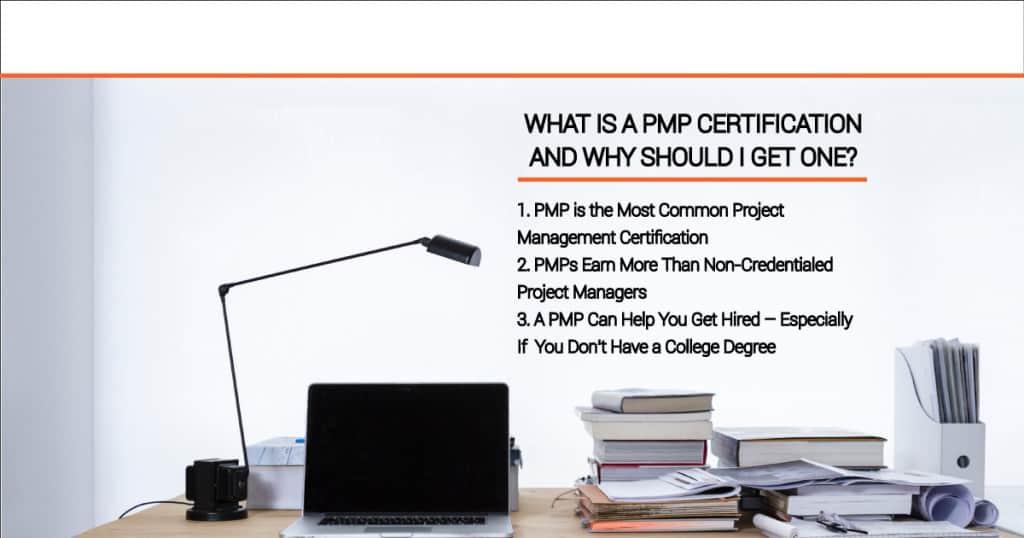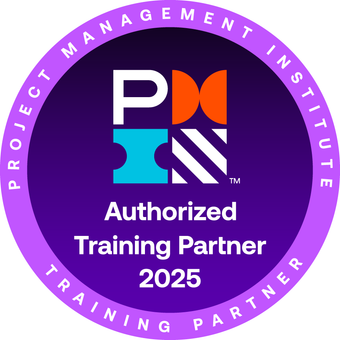Getting Your PMP Certification: Project Management Experience Explained

Yad Senapathy, PMP November 09, 2022
If you want to become a certified Project Management Professional (PMP), you'll need to have project management experience.
In this guide, we'll cover the basics of what you'll need to get a PMP certification, and go over the project management experience requirement in depth.
What is a PMP Certification and Why Should I Get One?

These days, the best project managers have professional certifications. This demonstrates a proficiency in project management, including understanding key project management concepts.
For some certifications, a certain number of hours of actual hands-on project management experience is required.
The leading project management certifying body is a non-governmental organization known as the Project Management Institute, or simply PMI.
PMI offers the most popular project management certification worldwide, called "Project Management Professional" (PMP).
Why obtain a PMP certification?
1. PMP is the Most Common Project Management Certification
More than 750,000 people are certified as PMPs globally. This number has approximately doubled since 2010, when around 385,000 people carried a PMP certification.
2. PMPs Earn More Than Non-Credentialed Project Managers
According to PMI's Earning Power Salary Survey, a PMP certification will net a higher salary of approximately 20% more on average.
3. A PMP Can Help You Get Hired - Especially If You Don't Have a College Degree
Hiring managers will prefer PMP-certified applicants over ones who don't have the credential. In fact, some jobs will require it.
Also, if you never got around to finishing college, but managed to amass a lot of experience in project management, a PMP certification is a quick and relatively inexpensive way to get a credential that can make up for not having a bachelor's degree.
How Can I Get My PMP Certification?
The main thing you need to do to get PMP-certified is to pass an exam. The test has 200 multiple-choice questions, and PMI gives you four hours to complete the test.
To keep your PMP certification current, you need to earn 60 "professional development units" (PDUs) every three years. This is what is often called "continuing education units" or CEUs in other professions.
You also need PMP project management experience. Basically, you need to have spent a certain number of hours doing project management in a professional setting in order to quality to take the exam.
The exact number of project management hours you need depends on your level of education.
What are the Requirements for a PMP Certification?
Before you take the PMP certifying exam, you must meet certain requirements. These include:
1. If You Have a Bachelor's Degree
· You must have a four-year degree (most likely from an accredited college).
· You need a minimum of 3 years (36 months) of unique, non-overlapping experience.
· You need to have 4,500 hours of experience leading and directing projects.
· You need to have taken 35 hours of project management education.
2. If You Do Not Have a Bachelor's Degree
· You need a secondary degree (high school diploma, high school equivalency (GED, TASC, HiSET), associate's degree, or the global equivalent).
· You need a minimum of 5 years (60 months) of unique, non-overlapping experience.
· You need to have 7,500 hours of experience leading and directing projects.
· You need to have taken 35 hours of project management education.
In other words, people without four-year college degrees can apply, as long as they have a high school diploma or equivalent. They simply have to have 3,000 more hours of experience leading projects.
If you cannot meet these basic criteria, you simply are not eligible for a PMP at this time. You should apply for a Certified Associate in Project Management (CAPM) in the meantime while building up your professional experience. You can earn this certification simply through undergoing 23 hours of project management training and taking a test.
So, let's say you think you might meet the requirements for a PMP. The question is: What is considered project management experience for the purposes of PMP certification?
What Counts as Project Management Experience for My PMP Application?

What is project management experience? PMI has certain requirements for what can count for project management experience for their certification. These requirements are outlined in the Project Management Professional Handbook. They include:
1. Project Management Experience Leading and Directing Projects
For the purposes of certification, the Project Management Institute defines project management as "leading and directing the project as identified with the tasks, knowledge, and skills specific in the Project Management Professional Examination Content Outline."
This also means you were in charge of the project. You weren't a resource working on the nuts and bolts but coordinating things.
2. Unique, Non-Overlapping Project Management Experience
When calculating the months and years of experience you have, you cannot count two projects that you worked on simultaneously twice.
For example, let's say you worked on Project A from January through May, and Project B from March through May. Your total months would be five (January through May) and not eight (which would count the months March through May as double).
However, when calculating your hours of experience, you simply add up all the hours spent on all your projects.
3. Project Management Experience with the 5 PMI Process Groups
PMI's project management process is broken up into five process groups (or project stages). You will need to have experience leading projects during all five process groups, however, you have to obtain that experience on different projects.
4. Project Management in a Professional Setting
You could earn your experience as an unpaid intern, but your project management experience must have occurred in a professional environment under supervision. This means that managing a personal project or helping out as a volunteer for a school event won't count.
How Do I Document My Project Management Experience?
You should get into the habit of keeping track of your experience in project management before you apply for your PMP. You might keep a spreadsheet with an overview of each project, the company, supervisor, project dates, your responsibilities, and your actual hours.
You don't actually need to submit your project management experience to PMI when you apply for the PMP certification. However, approximately one in four or five applications is typically audited. If you are audited then, you will have to submit documentation to PMI, which can be a detailed process and requires a supervisor's sign-off.
What Happens if I Fail a PMI Audit?
If you fail a PMP certification audit because you outright lied or falsified information on your application, PMI can and will ban you for life. This is not a good outcome, obviously, so don't make things up. You are far better off getting the easier CAPM certification first and building up your experience to apply when you are truly ready.
However, sometimes you might fail an audit due to a personal error or simply not having enough time to deal with the paperwork. If you made an error, contact PMI as quickly as possible to rectify the situation.
If it's a case where you were not able to get verification from the supervisor due to no fault of your own, or you don't have time to deal with the audit and bail, you are typically suspended from reapplying for one year and have to pay a $100 administration fee.
These terms may change, and PMI often deals with audits on a case-by-case basis.
You Have Your PMP Project Management Experience, Now What?
Once you send in your application, you'll need to schedule your PMP certification test. This is a comprehensive exam, so you'll need to study. Make sure you understand all of PMI's basic project management concepts, including process groups and knowledge areas. With the right preparation, you'll be receiving your official PMP certification in no time.

Yad is not just the leader of the Project Management Training Institute (PMTI). He helped to write significant portions of the project management standards worldwide. He is helping PMI right now in reviewing, directing, and leading the development of the 7th edition of the PMBOK® Guide to incorporate the most monumental changes to project management standards in 35 years. He shares his wisdom with readers via the PMTI blog.

 Leaders in PM industry for 22+ years
Leaders in PM industry for 22+ years Verified PMI Authorized Training Partner
Verified PMI Authorized Training Partner Pioneers of 100% pass guarantee
Pioneers of 100% pass guarantee
 Authorize.Net trusted transactions
Authorize.Net trusted transactions Satisfies 35 contact hours
Satisfies 35 contact hours




